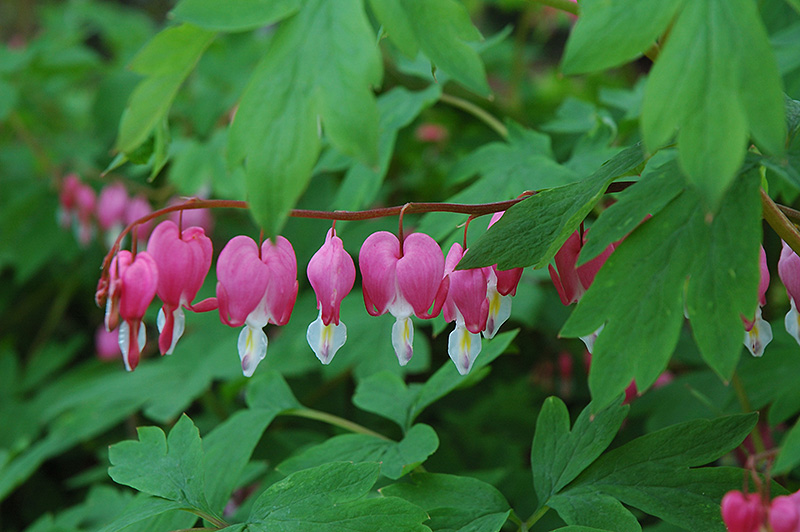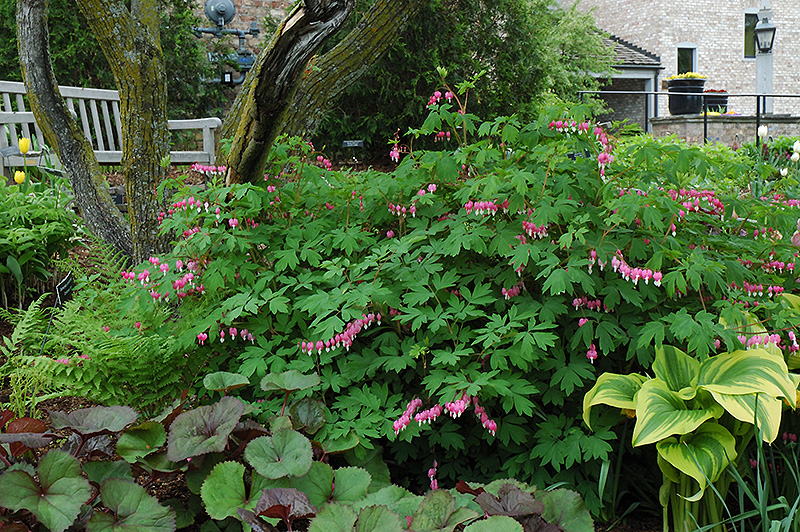Digging deeperPlant Library
Height: 3 feet
Spacing: 30 inches
Sunlight:
![]()
![]()
Hardiness Zone: 3
Other Names: Old Fashioned Bleeding Heart
Ornamental Features
Common Bleeding Heart features delicate nodding pink heart-shaped flowers with white tips dangling from the stems from late spring to early summer. Its ferny compound leaves remain bluish-green in color throughout the season.
Landscape Attributes
Common Bleeding Heart is an herbaceous perennial with a mounded form. Its relatively fine texture sets it apart from other garden plants with less refined foliage.
This plant will require occasional maintenance and upkeep, and is best cleaned up in early spring before it resumes active growth for the season. It is a good choice for attracting butterflies to your yard, but is not particularly attractive to deer who tend to leave it alone in favor of tastier treats. It has no significant negative characteristics.
Common Bleeding Heart is recommended for the following landscape applications;
- Mass Planting
- General Garden Use
Planting & Growing
Common Bleeding Heart will grow to be about 3 feet tall at maturity, with a spread of 3 feet. When grown in masses or used as a bedding plant, individual plants should be spaced approximately 30 inches apart. It grows at a medium rate, and under ideal conditions can be expected to live for approximately 15 years. As an herbaceous perennial, this plant will usually die back to the crown each winter, and will regrow from the base each spring. Be careful not to disturb the crown in late winter when it may not be readily seen! As this plant tends to go dormant in summer, it is best interplanted with late-season bloomers to hide the dying foliage.
This plant does best in partial shade to shade. It does best in average to evenly moist conditions, but will not tolerate standing water. It is not particular as to soil pH, but grows best in rich soils. It is somewhat tolerant of urban pollution. Consider applying a thick mulch around the root zone over the growing season to conserve soil moisture. This species is not originally from North America. It can be propagated by division.
A NetPS Plant Finder tool
This Plant Library is for informational purposes only. We may or may not carry the items listed. During many times of the year, we may carry many more plants in our store than are listed in the Plant Library. Please contact us directly at 303-690-4722 or visit our store for current availability and for assistance.

